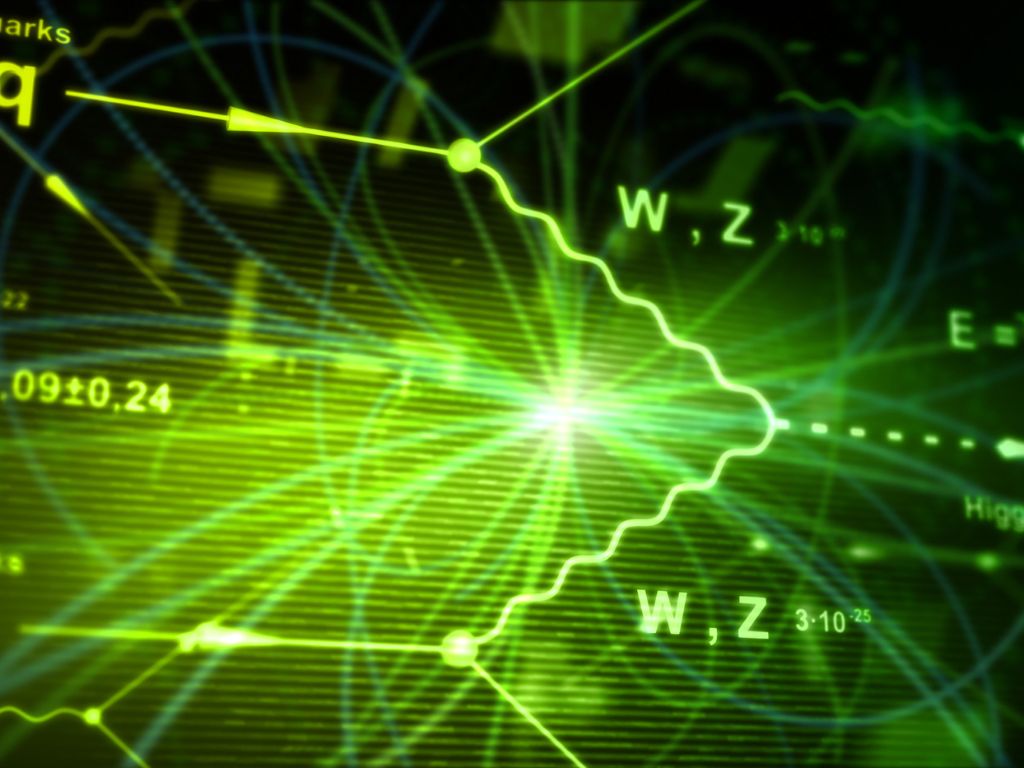The Higgs boson, often referred to as the ‘God Particle,’ has captivated the imaginations of physicists and the general public for decades. Its elusive nature and central role in our understanding of the universe have drawn considerable attention since it was first theorized in the 1960s. In this article, we will uncover the intriguing tale of the Higgs boson, explore its importance in particle physics, and seek to comprehend the origin of its powerful nickname.
Why Higgs Boson is Called a God Particle
The Theoretical Background:
The Higgs boson is a key component of the Standard Model of particle physics. Established in the 1970s, the Standard Model offers a comprehensive framework that explains the fundamental particles and forces that compose the universe. It encompasses 17 elementary particles, including quarks, leptons, and bosons, which transmit forces between other particles.
British physicist Peter Higgs first proposed the existence of the Higgs boson and its corresponding Higgs field in 1964. This invisible energy field, which pervades the entire universe, is responsible for bestowing mass upon particles as they traverse it. Mass is essential for the formation of atoms, stars, galaxies, and the entire observable universe.
The Origin of the Name: ‘The God Particle’:
The moniker ‘God Particle’ originated from the 1993 book by Nobel laureate Leon Lederman, titled “The God Particle: If the Universe Is the Answer, What Is the Question?” In his work, Lederman delves into the significance of the Higgs boson and the challenges associated with detecting it. Though the name might sound lofty, it underscores the Higgs boson’s vital role in deciphering the secrets of the universe, as it holds the key to understanding why particles possess mass and how they interact.
The Pursuit of the Higgs Boson:
The hunt for the Higgs boson spanned decades and required both theoretical and experimental breakthroughs in particle physics. The construction of the Large Hadron Collider (LHC) at CERN, the European Organization for Nuclear Research, marked a major step forward in this pursuit.
The LHC, the largest and most powerful particle accelerator in existence, was designed to smash protons together at extraordinarily high speeds, simulating the conditions of the early universe. By examining the aftermath of these high-energy collisions, physicists hoped to uncover the elusive Higgs boson, as well as other mysterious particles and phenomena.
🔬 Subscribe to SciMail
Get the latest science discoveries straight to your inbox!
On July 4th, 2012, researchers at CERN announced that they had discovered a new particle in line with the long-anticipated Higgs boson. This groundbreaking discovery confirmed the existence of the Higgs field and secured the Higgs boson’s place within the Standard Model. Peter Higgs and Belgian physicist François Englert were awarded the 2013 Nobel Prize in Physics for their pioneering work in the field.
The Impact of the Higgs Boson Discovery:
The Higgs boson’s discovery has wide-ranging implications for our understanding of the cosmos. First and foremost, it corroborates the theories that have underpinned particle physics for over half a century. The existence of the Higgs boson validates the Standard Model, reinforcing our knowledge of the fundamental forces and particles that govern the universe.
Additionally, the Higgs boson’s discovery paves the way for further research into areas such as dark matter, dark energy, and the early universe. By grasping the Higgs mechanism, physicists can probe deeper into the enigmatic nature of these phenomena and strive to unravel even greater cosmic mysteries.
Now that the Higgs boson has been discovered, physicists can embark on new quests to further explore the unknown. The Higgs boson may hold the key to understanding phenomena like supersymmetry, which seeks to unite the particles and forces of the Standard Model with a more comprehensive theory. Additionally, the study of the Higgs boson can help us learn more about the early moments of the universe, shedding light on the process of cosmic inflation and the conditions that led to the formation of galaxies.




Leave a Reply